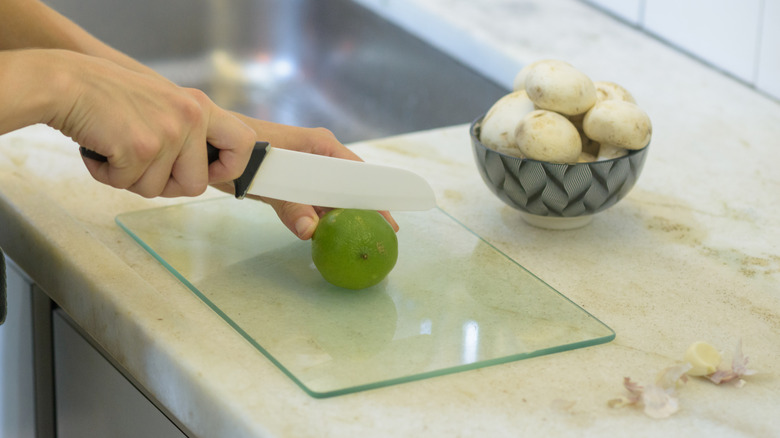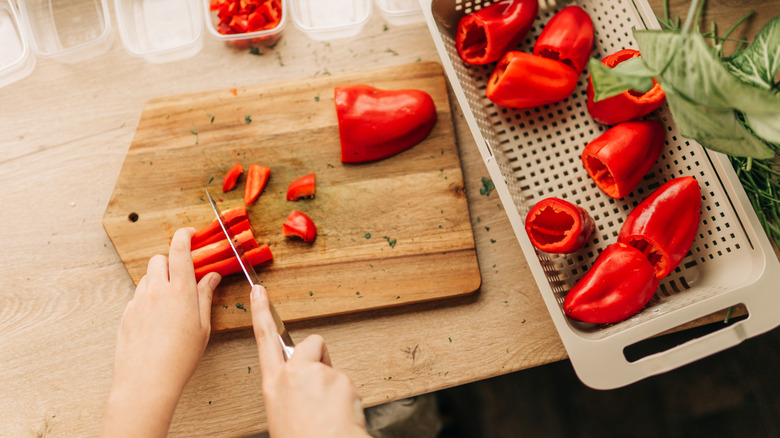The Dangerous Reasons You Should Never Use A Glass Cutting Board
Glass cutting boards may have aesthetic appeal, but their look is far outweighed by the number of problems and outright dangers they pose to users in kitchens. You may think that a glass board is easier to use and clean than a wood cutting board, but the opposite is actually true: Wood boards can handle more wear, are far easier to keep free of bacteria, and won't damage your kitchen tools in the same way as a glass board. There are so many reasons to avoid using glass cutting boards, but for the sake of space and time, I'll give three.
For starters, glass cutting boards have a slick surface, making it more likely that items you cut, from meat to vegetables, can slip away from your control and drastically increase your chances of serious injury. Also, glass cutting boards dull knives; every strike of your knife on the board blunts its edge because of its hard surface (the technical term is "rounding"), and if you're using a glass board, you'll need to sharpen your knives more often than the recommended twice-a-year schedule. A dull blade also poses its own dangers: They require more pressure to cut items, which increases the chance that it will slip and cause injury.
The final reason is that glass, even good tempered glass, can chip and shatter, and there is the chance that fragments can enter the food you're cutting and be consumed. It goes without saying that eating glass is extremely dangerous, as it can damage your mouth, throat, stomach, and GI tract. Frankly, it's best to avoid using glass cutting boards altogether.
For the love of your knives and food, get these cutting boards instead
You may think that plastic cutting boards are an acceptable alternative to both wood and glass boards, but there's a reason to avoid them as well. Plastic boards lack the natural anti-microbial defenses that are found in wood cutting boards. Wood boards are porous, which prevents the accumulation of moisture that bacteria often need to thrive; certain wood types also contain natural compounds which hamper bacterial growth. When plastic boards are cut, bacteria and viruses set up shop in the plastic grooves and are exceptionally hard to kill off; it's why your cutting board is probably dirtier than your toilet. Plastic boards can also chip and fragment; studies have shown that plastic boards create more waste than we thought, leaving behind microplastics with every use.
Wood boards have not only anti-bacterial properties, but will also keep your knives sharper for longer periods of time, which means a greater life span for your kitchen tools. It also won't shatter or chip like glass or plastic, and won't leave behind microplastics in your food. If caring for a wood cutting board is your concern, all you need to do is oil your wood boards about once a month; the manufacturer should provide a recommended oiling schedule. And if cost is a concern, bamboo cutting boards are lightweight, cheap, and have some of the best anti-microbial defenses of any wood.

